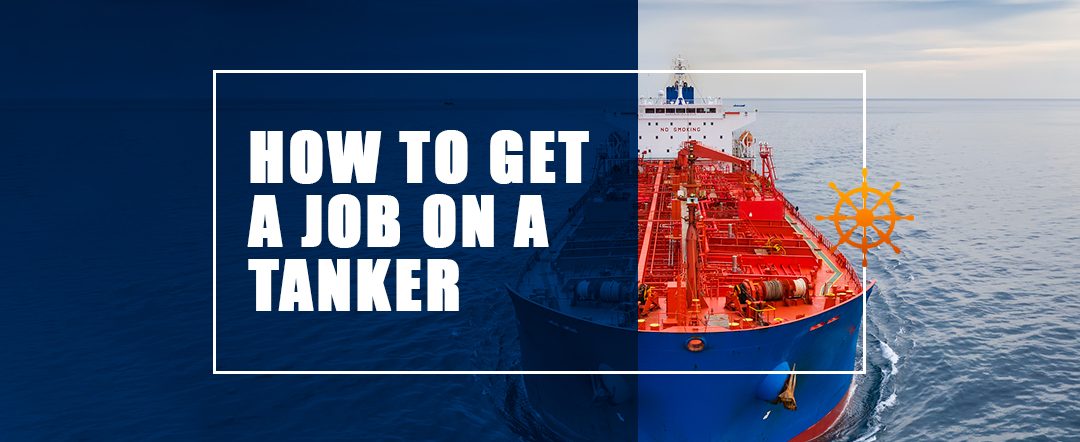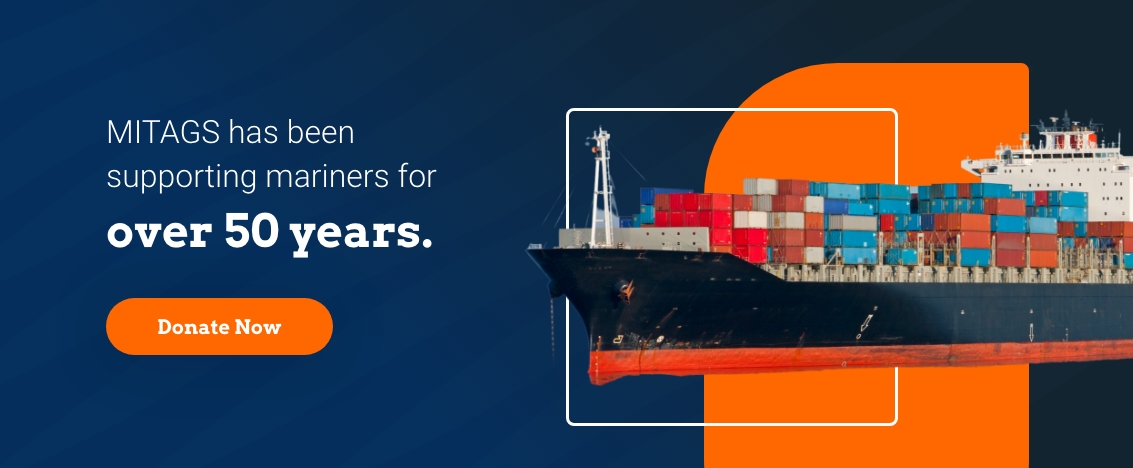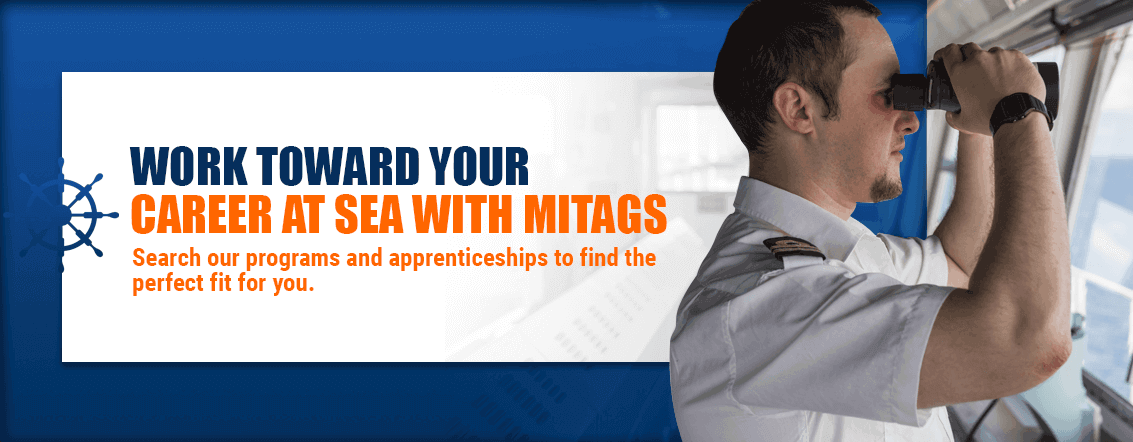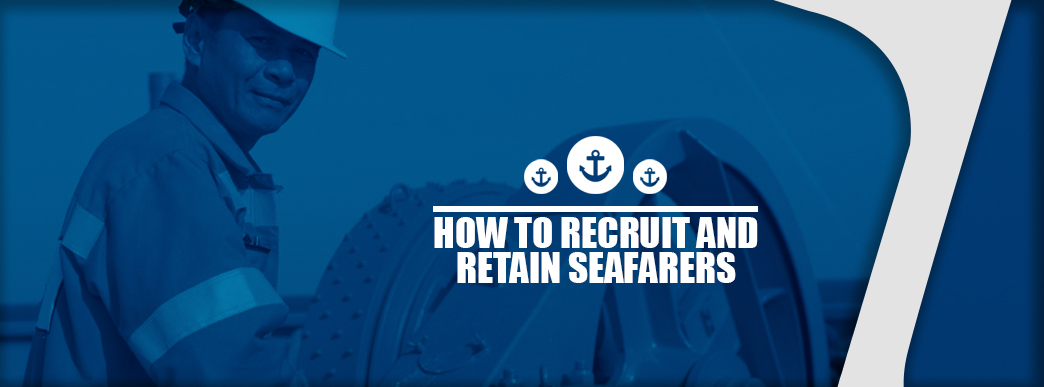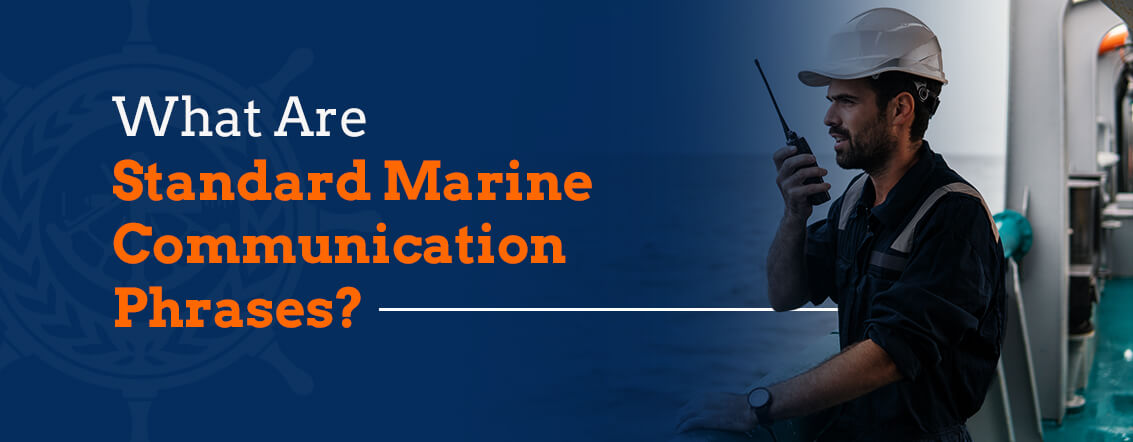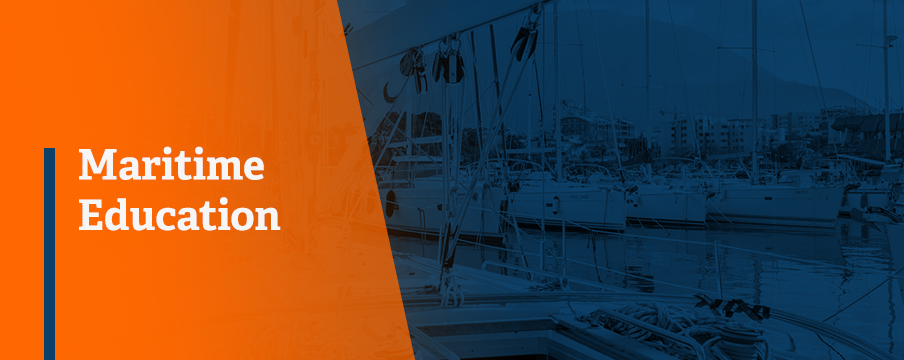For those who love the sea and maritime studies, starting a career at sea on tankers may be a path worth exploring. With plenty of options in the maritime industry, available jobs needed aboard tankers and the chance for international travel, tankers provide many benefits for those looking to gain experience in the shipping industry.
What Is a Tanker?
Tankers are a type of transport vessel used to carry goods in bulk from one place to another. They may also transport liquids or gases internationally and to local trading ports, like the Suez and Panama Canals. These ships vary in size to account for their function and demand.
Oil Tankers
Oil tankers are a type of vessel used to transport oil and petroleum products worldwide via the sea. These tankers account for about three main types of oil tankers, each bearing a different kind of oil:
- Crude oil carriers transport oil in an untouched and natural state.
- Product carriers specialize in refined forms of oil, like gasoline
- Dirty carriers transport black oils.
Oil tankers are unique in design, with their pipelines visible on the deck of their ships.
Chemical Tankers
Chemical tankers carry chemicals across the water. These types of vessels have a wide variety of substances, from chemicals like sulfuric acid to lubricating oils, industrial solvents, and household food items, including olive and coconut oils.
Due to the variety of products that they transport, there are three different types of shipping containment, each with their own safety codes:
- The first type has the highest level of protection against leaks or spills in the event of collision or grounding and carries the most hazardous chemicals.
- The second type also transports dangerous substances and requires incredible care to avoid spills, but the contents are less dangerous than category one.
- The third type ships the least dangerous chemicals with cargo that can only do moderate damage to health and the environment.
Both type one and two have zinc and stainless steel lining the shipping containers to help decrease the chances of leaks. Because most transported chemicals are not incredibly dangerous, types two and three are the most common chemical tankers.
Gas Carrier Tankers
Gas carrier tankers transport forms of natural and petroleum gases. These products are generally in their gaseous state at ambient pressures and temperatures. However, they are carried aboard ship only in their liquid state. This is accomplished by one of three methods. In order to keep the product in a liquid state, it is either refrigerated or kept under pressure, or a combination of both. As such there are three types of gas carrier ships, based upon which of the above three methods they are designed to use.
Replenishment Tankers
Replenishment tankers are vessels that bring fuel to other ships. Many refer to them as oilers or replenishment oilers because they carry oil to ships that need it. These types of ships are essential in the safe passage of other vessels at sea to ensure they are able to reach their destination.
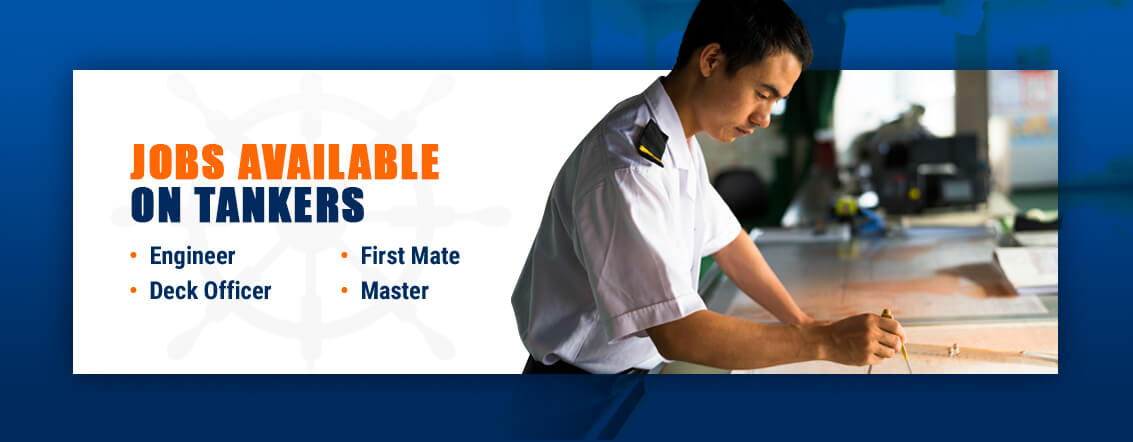
Jobs Available on Tankers
There are a wide variety of jobs available in the shipping industry, both on land and on the water. When starting your career at sea, it is essential to find the position that best fits your interests so you can get the most out of your time offshore.
Engineer
As an engineer, you will work with different technical and mechanical parts of the ship. It is your duty to help maintain the ship’s functions to ensure it is running smoothly for other members of the crew. Maritime engineers tend to be very versatile engineers and mechanics, over time, developing very detailed knowledge of many different types of systems and equipment. Engineers may also work on tankers to test equipment they or other engineers designed.
Deck Officer
Deck officers are essential on commercial ships like tankers. As a deck officer, you will communicate with necessary lines outside the ship and handle the transportation of your ship’s goods. There are many different levels of deck officers with varying roles, making it perfect for finding the career at sea you are looking for in this position. On a tanker, in addition to underway navigation duties, a deck officer oversees the transfer of bulk liquid cargo during loading and unloading (or discharging).
Chief Mate
The first mate serves as the right-hand to the captain of the ship. They oversee the responsibilities of the other deckhands and ensure everything is functioning as it should, as well as aid in the navigation of the vessel. On a tank ship, the Chief Mate has primary responsibility for overseeing the loading, unloading, and safe transport of the liquid cargo. Because of their proximity to the captain, first mates need to be prepared to command the ship should the captain become incapacitated.
Master
Master is another name for the captain of a vessel. As master, you are responsible for the crew’s safety and must carry out any necessary health and safety procedures. Daily, you are the one that delegates tasks to other members aboard the ship, like mates and deck officers.
While these jobs are important, there are plenty of other positions aboard tankers. Each role aboard this type of vessel ensures the safe passage of the crew and delivery of cargo, making each job essential.
Benefits to Working On Tankers
One benefit to working on a tanker is that workers have a relatively high salary. Captains, for example, can make up to $135,000 per year with chances of bonuses. In addition to a good salary, the higher health and safety conditions on tankers due to the nature of their cargo allow for safer working conditions for employees on the ship.
How to Work Aboard Tankers
Getting a job on a tank ship comes with some prerequisites. In order to work on a US ship, a Seaman’s Document, issued by the US Coast Guard is required. Various positions require Coast Guard certification or licensing appropriate to that onboard position. In order to be an officer on a tank ship, an endorsement for Dangerous Liquid Cargoes and/or LNG is also required. Many seagoing officers have a bachelor’s degree, but that is not a prerequisite. Besides specified skills from the field, general communication and critical thinking skills are essential for following commands and solving problems aboard the vessel.
Communication is vital on a ship where higher-ranking team members depend on the other members of their ship to understand commands crucial for cargo delivery and safe arrival of the crew. Having clear demonstrations of these skills can help you stand out against other applicants trying to begin careers in the shipping industry.
Work Toward Your Career at Sea With MITAGS
At the Maritime Institute of Technology and Graduate Studies (MITAGS), our comprehensive set of courses and programs will help you gain the necessary experience and prepare you for a career on a tanker. At MITAGS, we offer a range of courses students can use to build their degree and ensure they can work toward their desired career at sea.
MITAGS offers comprehensive and specified programs to help students obtain specific licenses needed to work aboard ships. Our programs teach students in the class, through simulations and on the water to ensure our students gain experience through their program. Search our programs and apprenticeships to find the perfect fit for you.
Contact MITAGS today for more information about enrolling and begin the journey towards your career in the shipping industry.

